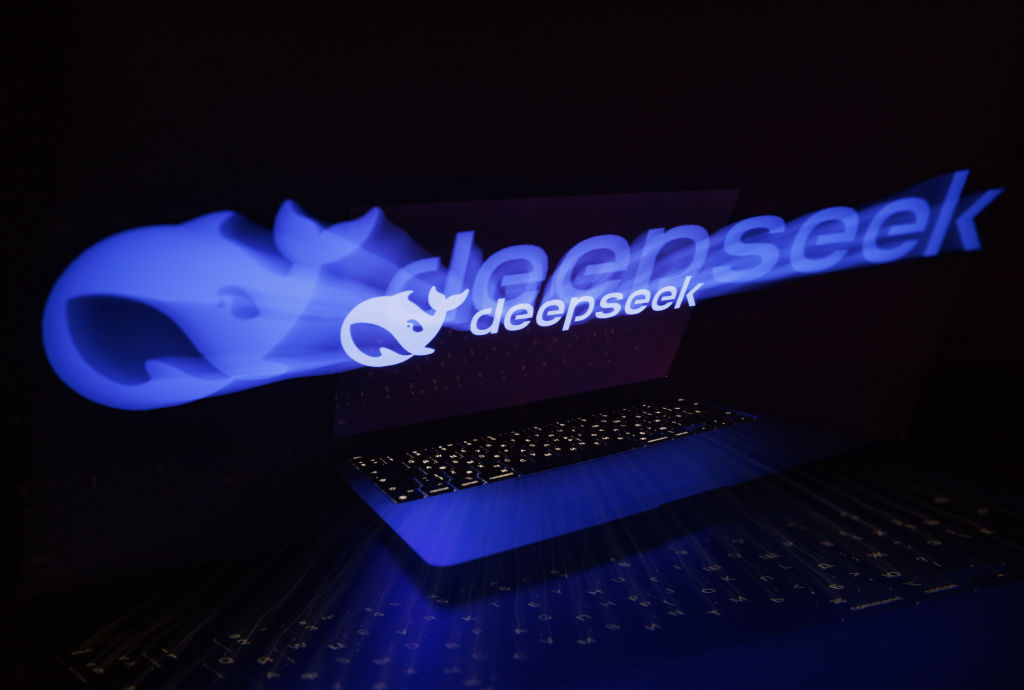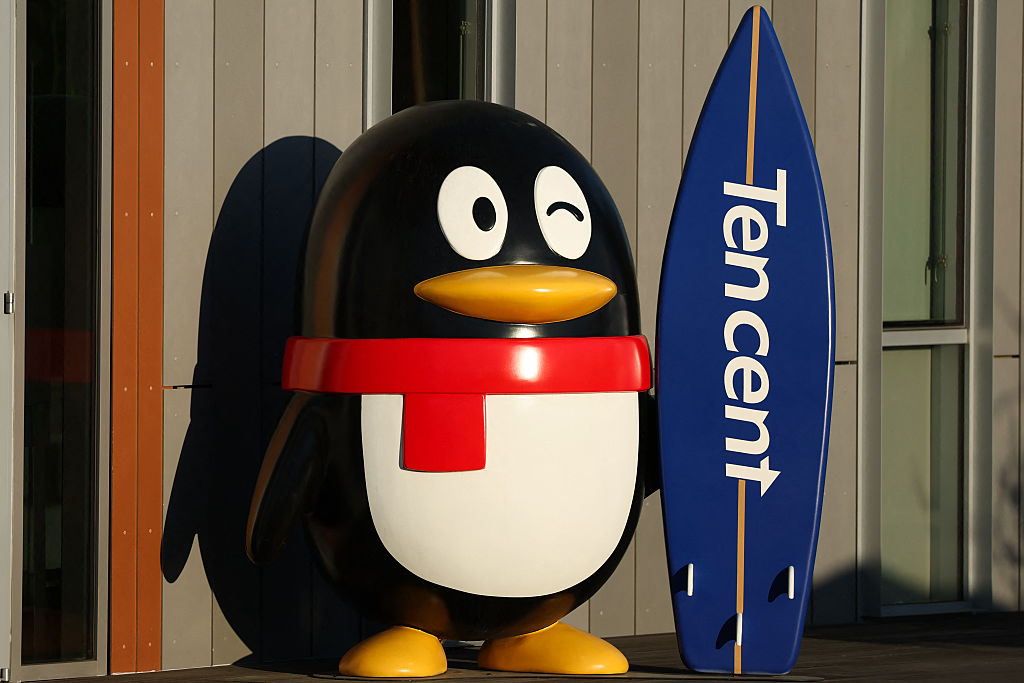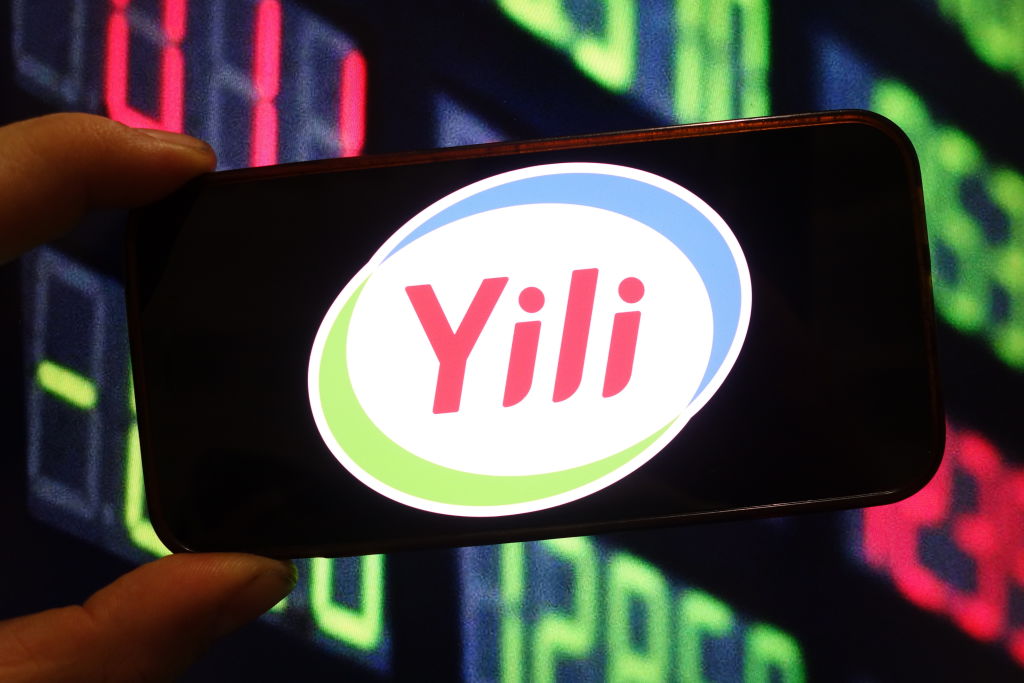DeepSeek: Chinese chatbot sends shockwaves through US stock market
China’s launch of a cheaper, more efficient version of ChatGPT could challenge Silicon Valley’s dominance in the AI race


Get the latest financial news, insights and expert analysis from our award-winning MoneyWeek team, to help you understand what really matters when it comes to your finances.
You are now subscribed
Your newsletter sign-up was successful
Want to add more newsletters?

Twice daily
MoneyWeek
Get the latest financial news, insights and expert analysis from our award-winning MoneyWeek team, to help you understand what really matters when it comes to your finances.

Four times a week
Look After My Bills
Sign up to our free money-saving newsletter, filled with the latest news and expert advice to help you find the best tips and deals for managing your bills. Start saving today!
The S&P 500 closed 1.5% lower on Monday, driven by a sell-off in the technology sector. The tech-heavy Nasdaq 100 shed 3.0%.
It comes after Chinese company DeepSeek launched a new model of its AI chatbot this month – a competitor to ChatGPT – which reportedly has lower development costs and better performance on some mathematical and logical processes.
This has challenged the idea that the US is the undisputed leader in the AI race. DeepSeek has now overtaken ChatGPT as the highest-rated free application on the US App Store.
MoneyWeek
Subscribe to MoneyWeek today and get your first six magazine issues absolutely FREE

Sign up to Money Morning
Don't miss the latest investment and personal finances news, market analysis, plus money-saving tips with our free twice-daily newsletter
Don't miss the latest investment and personal finances news, market analysis, plus money-saving tips with our free twice-daily newsletter
DeepSeek’s new model was reportedly developed for less than $6 million, compared to the $100 million or more reportedly spent on training previous models of ChatGPT. It is also an open source application, meaning the code is available to anyone to view or modify.
This spells bad news for the US, which has been trying to control China’s advances in the AI race by restricting the type of chips that companies are allowed to export to the country. Generative AI requires enormous computing power to work, and semiconductor chips developed by companies like Nvidia facilitate this.
Rather than having the desired effect, though, the latest developments with DeepSeek suggest US restrictions have forced Chinese companies to get creative.
“The world’s leading AI companies train their chatbots using supercomputers that use as many as 16,000 chips, if not more,” the New York Times reports. “DeepSeek’s engineers, on the other hand, said they needed only about 2,000 specialized computer chips from Nvidia.”
Marc Andreessen, a Silicon Valley venture capitalist and advisor to US president Donald Trump, has described the launch of DeepSeek as “AI’s Sputnik moment”.
What is DeepSeek?
DeepSeek is an artificial intelligence chatbot, made in China and released on 20 January. Like ChatGPT, it is a large language model which answers questions and responds to prompts.
Those behind DeepSeek say the model cost significantly less to develop than its competitors. It is this efficiency that has spooked markets.
Furthermore, users have reported that DeepSeek’s performance is comparable to that of ChatGPT, and in some cases better. Our sister site Tom’s Guide compared DeepSeek and ChatGPT’s answers across a logical reasoning task, a language translation task, an ethical dilemma, and more. It declared DeepSeek the overall winner.
Despite this, reports from The Guardian and The Telegraph have flagged some concerning responses which indicate a lack of free speech around sensitive political topics.
In response to the question, “Is Taiwan a country?”, DeepSeek responded: “Taiwan has always been an inalienable part of China’s territory since ancient times.”
Why are US tech stocks selling off?
Nvidia closed 16.9% lower on Monday. The company shed almost $600 billion of its market value – the biggest one-day loss in US history.
Nvidia was the worst-hit of the US tech stocks, but Alphabet also fell more than 4% and Microsoft more than 2%.
“China's success with DeepSeek, despite sanctions, spells bad news for companies that planned to sell AI technology at a premium,” says Jochen Stanzl, chief market analyst at CMC Markets.
“Companies that relied on large server farms and costly investments in chips to maintain their competitive edge now face significant challenges,” he adds.
Stanzl says this is particularly bad for the likes of Nvidia, as the company could see less demand for its chips going forward.
Despite this, the stock has recovered slightly in pre-market trading on Tuesday, rising 5%.
How to protect your portfolio
The US technology sector has delivered wild outperformance in recent years – but it is a double-edged sword. The gains are welcome, but the concentration risk is not.
The best way to manage concentration risk is through careful diversification. This is one example of where an active fund manager could come into their own.
While a passive ETF just tracks the market, an active fund manager picks and chooses which stocks to include, weighting each position accordingly.
Before buying an active fund, you should look closely at the fund manager’s track record to see whether their performance justifies the higher fees they will charge. You might not feel it is worth it.
You should also do your research to ensure the fund manager’s investment style aligns with your objectives. Some managers will be more bullish on Big Tech than others.
Finally, remember that reducing your allocation to Big Tech could come back to bite you if the latest sell-off turns out to be little more than a blip.
Terry Smith’s Fundsmith Equity is one of the best-known active products on the market, but it has underperformed the MSCI World for four years in a row now thanks to Smith’s reluctance to invest too heavily in the Magnificent Seven.
Get the latest financial news, insights and expert analysis from our award-winning MoneyWeek team, to help you understand what really matters when it comes to your finances.
Katie has a background in investment writing and is interested in everything to do with personal finance, politics, and investing. She previously worked at MoneyWeek and Invesco.
-
 Can mining stocks deliver golden gains?
Can mining stocks deliver golden gains?With gold and silver prices having outperformed the stock markets last year, mining stocks can be an effective, if volatile, means of gaining exposure
-
 8 ways the ‘sandwich generation’ can protect wealth
8 ways the ‘sandwich generation’ can protect wealthPeople squeezed between caring for ageing parents and adult children or younger grandchildren – known as the ‘sandwich generation’ – are at risk of neglecting their own financial planning. Here’s how to protect yourself and your loved ones’ wealth.
-
 Three key winners from the AI boom and beyond
Three key winners from the AI boom and beyondJames Harries of the Trojan Global Income Fund picks three promising stocks that transcend the hype of the AI boom
-
 'AI is the real deal – it will change our world in more ways than we can imagine'
'AI is the real deal – it will change our world in more ways than we can imagine'Interview Rob Arnott of Research Affiliates talks to Andrew Van Sickle about the AI bubble, the impact of tariffs on inflation and the outlook for gold and China
-
 Three promising emerging-market stocks to diversify your portfolio
Three promising emerging-market stocks to diversify your portfolioOpinion Omar Negyal, portfolio manager, JPMorgan Global Emerging Markets Income Trust, highlights three emerging-market stocks where he’d put his money
-
 New year, same market forecasts
New year, same market forecastsForecasts from banks and brokers are as bullish as ever this year, but there is less conviction about the US, says Cris Sholto Heaton
-
 How to profit from the UK leisure sector in 2026
How to profit from the UK leisure sector in 2026The UK leisure sector had a straitened few years but now have cash in the bank and are ready to splurge. The sector is best placed to profit
-
 Metals and AI power emerging markets
Metals and AI power emerging marketsThis year’s big emerging market winners have tended to offer exposure to one of 2025’s two winning trends – AI-focused tech and the global metals rally
-
 Quality emerging market companies with consistent returns
Quality emerging market companies with consistent returnsOpinion Mark Hammonds, portfolio manager at Guinness Global Investors, selects three emerging market stocks where he'd put his money
-
 Coreweave is on borrowed time
Coreweave is on borrowed timeAI infrastructure firm Coreweave is heading for trouble and is absurdly pricey, says Matthew Partridge
